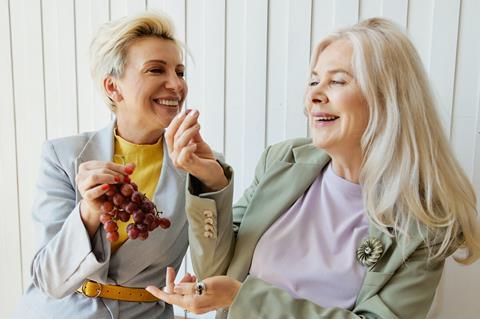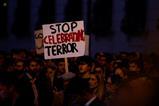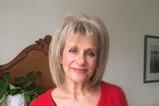Step aside youngsters, there's a new set of leaders, influencers, ministers and matriarchs in town. Here Christian writer Michele Guinness introduces you to the 'Queenagers'.

You know you’re old when you’re past fifty and a young man gets up and offers you his seat on the tube. Sadly it isn’t chivalry. It’s a: “With that wrinkly face, poor soul, it’s a wonder her legs can keep her up at all.” That’s the moment when you are cubbyholed into the “no sexual value ergo no societal value” box. He probably thinks you’re frail, weak, doddery and deaf as well.
But there’s a new word fighting its way into the English dictionary - "Queenager". It describes women of mid-life and upwards who refuse to be hidebound by the cultural caricatures of vulnerable, dotty elderly dears who cant go out alone and drain the beleagured NHS of its vital resources. For them age is just a number. But a Queenager is a leader, influencer, minister and matriarch, living life to the full and enjoying it.
I always vowed I’d be a geriatric delinquent in Boohoo skirts and large hoop earrings, and now with the pair of bright blue boots with multi-coloured stripes that my husband persuaded me into, I think Queenager is a better word fit for what I want to be. After all, our much-loved, late Queen shinned up steps without a stick, dressed like a peacock, and adapted to Zoom interviews during Covid well into her nineties. And she never lost her grace or charm, even after the loss of her beloved Philip.
A Queenager is a leader, influencer, minister and matriarch, living life to the full and enjoying it.
Women like Judi Dench, Helen Mirren, and Mary Berry, businesswomen, female entrepreneurs, politicians, the Bishop of London - a raft of older role models are proving that life doesn’t end at the menopause - even if most of the newspaper obituaries make it look as if it's only men who are successful to the end of their lives.
My personal Christian guru was the late, wonderful Helen Taylor Thompson, who, in her seventies saved the Mildmay Hospital and turned it into the foremost UK centre for the care and treatment of people with HIV. She founded two more charities in her eighties and raised their support in her widowed nineties charging all over the country in a wheelchair. No one dared to call her “dear” or question whether her opinions were of any worth. Not even Kenneth Clarke, former Secretary of State for Health. “Remember me, Minister?” she once asked him at a cocktail party. “I persuaded you to give me Mildmay for a peppercorn rent?” “Helen, how could anyone ever forget you?” he replied with a sigh of resignation.
Read more on getting older
Should Christian women be above worrying about their wrinkles?
Growing older isn’t a time to begrudge greys and wrinkles - it’s a time to ask God: ‘What’s next?’
I’m trying to decide how, as a Christian woman, I should age
Unforgettable is what we need to be in a society that still seems to believe older women have nothing more to give. I was in my mid-fifties when I hit the top of my career as Head of Communications for the NHS in Cumbria and Lancashire, with a brief to manage the performance of thirty communications managers across 27 NHS Trusts. I still think God was laughing. Hard to credit but I hadn’t the confidence to believe I could do the job and only went for interview because I was pushed into it by colleagues, friends and family. But I quickly discovered that all of life’s lessons from the nappy bucket to managing a household budget, from a job in youth work to media researcher, writer and PR consultant, all came into their own and stood me in good stead when at least half my junior colleagues were young men. We had a lot of fun together - and none challenged my authority.
Now, in so-called retirement I am full-time wife, mother, grandmother, daughter, writer, speaker, chef, hostess, domestic manager, friend, listener and volunteer. Whatever our many roles, women of my age generally have disposable income and time. We are the big spenders, but we have also added wisdom, experience and maturity to our uniquely female intuition, sensitivity, caring and communication skills. We are the now leaders in the arts, science, business, politics, health, education and church ministry. If we allow ourselves to be ignored or invisible in society or Church it’s their loss, as well as ours.
If we allow ourselves to be ignored or invisible in society or Church it’s their loss, as well as ours.
After months of sorting and clearing and coming to terms with her husband’s death my friend Alison finally faced the campervan out in the back yard. She turned the key in the ignition but not a squeak. At which point she put her head in her hands on the steering wheel and wept for all the new privations in her life. Then she blew her nose, rang the garage and within weeks was driving herself all over the country, camping and walking with her children or on her own. How I admire her feistiness.
I live with chronic pain now thanks to several rogue discs that compress nerve endings in my neck. I know what it is to drag myself out of bed in the morning with a blinding headache, then get up and get going because every breath we breathe is a gift and God is good. I will not be robbed of any of the time left to me. There is still so much more to be learned, said and done, wonders to watch, friends to visit, conversations to be had, dresses to wear, people to love. I may not be able to change the entire world, but my patch of it is enough. So a quintessential Queenager is what I want to be till the day I hang up my harp.



































No comments yet